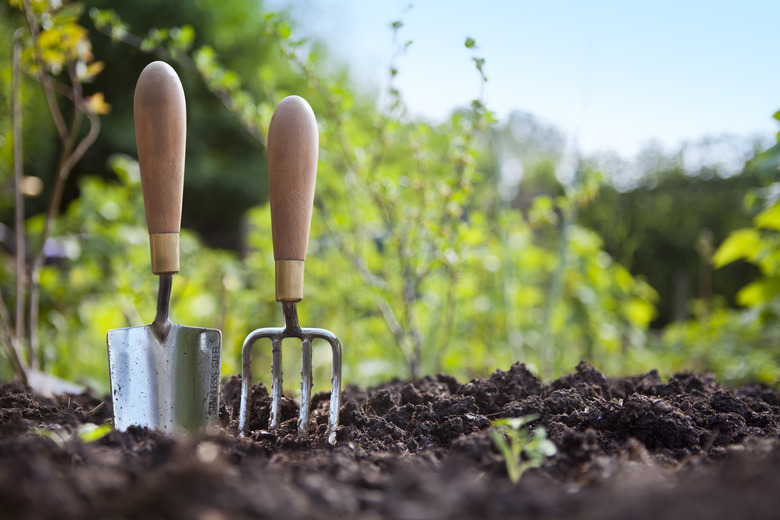The Effects Of Chemical Fertilizers On Soil
We may receive a commission on purchases made from links.
Chemical fertilizers are readily available in garden centers and home improvement stores. Many are formulated especially for edible plants, so you assume they're safe to use. However, these inorganic fertilizers have an impact on the environment, including the health of the soil. Being aware of their impact helps you decide if chemical fertilizers are the best garden care option for your plants.
Basics of Chemical Fertilizers
Basics of Chemical Fertilizers
Chemical fertilizers or inorganic fertilizers are manmade soil enhancers used to raise the level of nutrients found in soil. Natural nutrients found in the soil are essential for plant growth and include nitrogen, phosphorus, and potassium. These nutrients are manufactured synthetically from inorganic material and applied to soil in the form of chemical fertilizers to supplement what's available in your soil. Although chemical fertilizers improve the growth of plants and increase the yields of fruits and vegetables in a relatively short period of time, there are certain disadvantages of using chemical fertilizers as opposed to organic fertilizers derived from natural sources.
Ground Water Pollution
Ground Water Pollution
Using chemical fertilizers regularly causes the pollution of groundwater sources, also called leaching. Chemical fertilizers that are highly soluble get absorbed by the ground more rapidly than they are absorbed by the intended plants. Plants can absorb only a given level of nutrition at a time, leaving the rest of the fertilizer to leach.
Leaching is not only hazardous to groundwater sources but also to the health of the subsoil where these chemicals react with clay to create hard layers of soil known as hardpan. As a result of chemical fertilizer use, the health of soil and water is jeopardized, not to mention the waste of money and nutrient-deficient plants.
Soil Friability Effect
Soil Friability Effect
Having lots of acids in the soil, such as hydrochloric and sulfuric acids, creates a damaging effect on soil referred to as soil friability. The different acids in the soil dissolve the soil crumbs, which help to hold together the rock particles. Soil crumbs result from the combination of humus, or decomposed natural material such as dead leaves, with clay.
These mineral-rich soil crumbs are essential to soil drainage and greatly improve air circulation in the soil. As the chemicals in the chemical fertilizers destroy soil crumbs, the result is highly compacted soil with reduced drainage and poor air circulation. This can hurt the health of your plants.
Destruction of Microorganisms
Destruction of Microorganisms
The synthetic chemicals in chemical fertilizers change soil pH, which adversely affects the health of naturally found soil microorganisms. These altered levels of acidity in the soil eliminate the microorganisms that are beneficial to plant and soil health as they help to increase the plants' natural defenses against pests and diseases.
These helpful microorganisms consist of antibiotic-producing bacteria and mycorrhizal and other fungi, which are found in healthy soil. The use of chemical fertilizers also jeopardizes the health of bacteria that fix the nitrogen balance in the soil. These nitrogen-fixing bacteria are responsible for converting the atmospheric oxygen into a form of nitrogen that can be used readily by plants.
